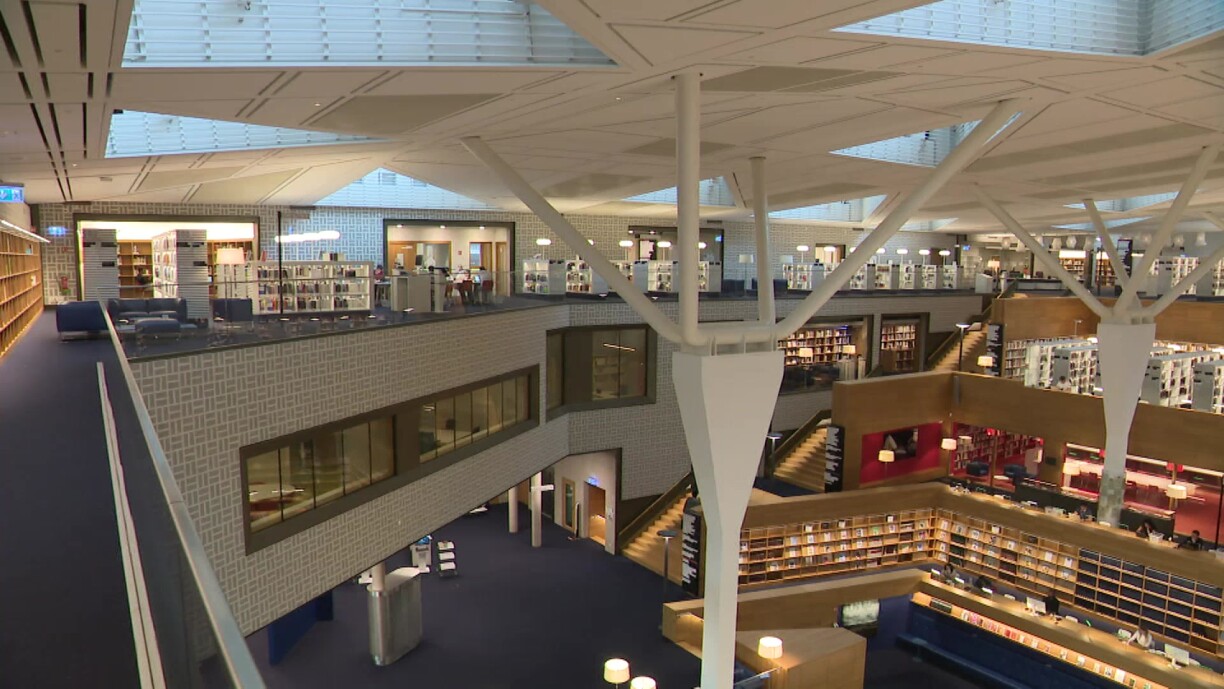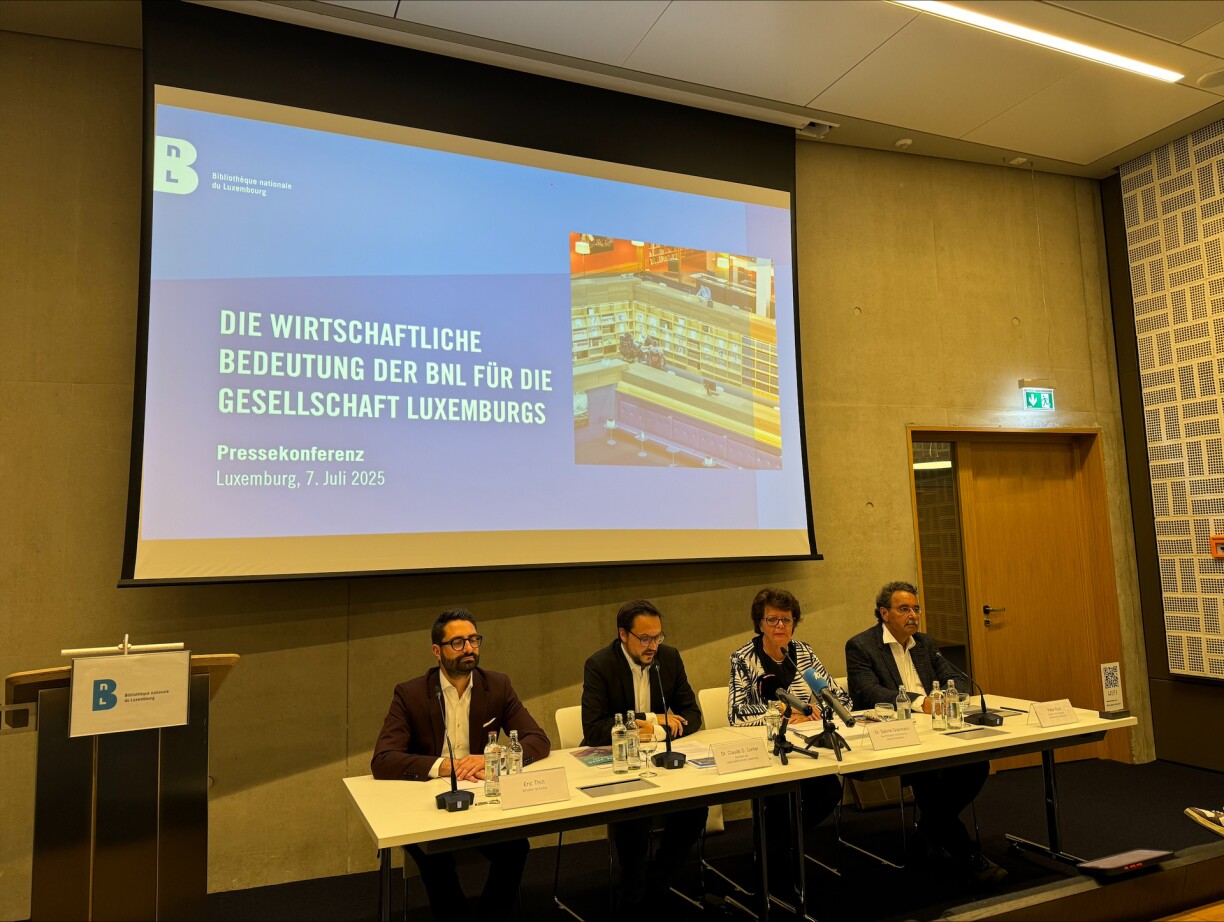
A recent study commissioned by the Luxembourg National Library (BNL) found that every euro invested in the institution yields a €3.34 return for the country’s society and research sector. The research, conducted by a German agency in early 2025, also revealed high user satisfaction and strong economic impact.
Annually, the BNL receives approximately €8.79 million in public funding. According to the study, this investment generates an estimated €38.13 million in value for Luxembourg’s research community.
During a press conference presenting the results, Sabine Graumann, a lead researcher on the study, highlighted key findings, including “exceptionally high user satisfaction” and a “significant competitive advantage” for the BNL. The survey also noted strong demand for expanded digital services, further training opportunities, and more intensive use of existing resources.
BNL Director Claude D. Conter welcomed the findings, emphasising their importance in demonstrating the library’s economic and cultural value. “The culture sector often faces pressure to justify its funding,” Conter noted, adding that the study provides concrete evidence of the BNL’s societal contribution.

Beyond financial metrics, the survey gathered user feedback that will shape future improvements. Participants called, among other things, for additional seating and extended opening hours – insights that Conter said will guide the BNL’s strategic development.
Minister of Culture Eric Thill stated the BNL study confirms the institution’s vital role in Luxembourg’s cultural landscape.
The minister announced broader government plans to strengthen library services nationwide, revealing that the Government Council recently approved a new library bill. The legislation, which Thill will soon present to parliament, proposes increased staffing and financial incentives for regional decentralised libraries, municipal libraries, and specialised libraries across the country.
“Regional libraries serve as crucial first contact points for many residents,” Thill emphasised.
The study’s positive outcomes have further motivated the ministry to expand cultural accessibility through free programming. While the BNL currently serves approximately 30,000 registered users, many services remain available to all residents without requiring library cards.